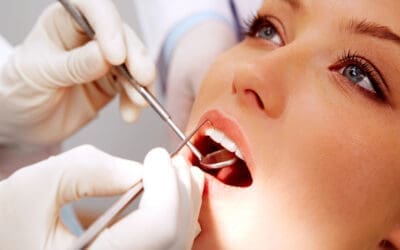Ever wondered what the teeth cleaning process entails for achieving a fresh smile? This step-by-step guide provides a general overview of the essential stages involved in maintaining oral hygiene, ensuring your teeth remain healthy and bright.“`html
Teeth Cleaning Process: Understanding Dental Plaque
Dental plaque is a sticky, colorless film of bacteria that constantly forms on your teeth. It is a natural occurrence in the mouth, but if not addressed through a regular teeth cleaning process, it can lead to various oral health issues. Plaque thrives on the sugars and starches in the food you consume, producing acids that can erode tooth enamel and cause cavities. Understanding the nature of dental plaque is crucial in maintaining a healthy smile and preventing more serious dental problems.
The teeth cleaning process is essential in managing dental plaque and ensuring oral hygiene. Regular removal of plaque through brushing and flossing helps prevent the buildup that can lead to tartar, a hardened form of plaque that requires professional intervention to remove. For more insights on maintaining oral health, consider reading about Regular Dental Cleaning: The Key to Long-Term Oral Health.
“`
Importance of Regular Cleanings
Regular dental cleanings are a crucial component of maintaining oral health and ensuring a bright, fresh smile. The teeth cleaning process not only helps in removing plaque and tartar buildup that regular brushing and flossing might miss, but it also plays a significant role in preventing gum disease and tooth decay. By keeping up with routine cleanings, individuals can enjoy healthier gums, stronger teeth, and a reduced risk of developing cavities or other dental issues.
Moreover, the teeth cleaning process is essential for early detection of potential oral health problems. During a cleaning session, dental professionals can identify signs of issues such as cavities, gum disease, or even oral cancer at an early stage, allowing for timely intervention. For those interested in learning more about maintaining their oral health through regular check-ups, visiting the Placerville Dental Exams page can provide additional insights.
Tools Used in Teeth Cleaning
In the teeth cleaning process, dental professionals utilize a variety of specialized tools to ensure a thorough and effective cleaning. These tools include ultrasonic scalers, which use vibrations to remove plaque and tartar, and hand scalers for more precise cleaning in hard-to-reach areas. Additionally, polishers are employed to smooth the tooth surfaces, enhancing their shine and helping to prevent future plaque buildup. Suction devices are also used to keep the mouth clear of saliva and debris during the procedure. Each tool plays a crucial role in maintaining oral hygiene and contributing to a fresh, healthy smile.
Initial Dental Examination
The initial dental examination is a crucial first step in the teeth cleaning process, setting the foundation for a healthy and fresh smile. During this examination, a dentist will thoroughly assess your oral health, checking for any signs of cavities, gum disease, or other dental issues that might need attention. This comprehensive evaluation helps in identifying the specific needs of your teeth and gums, ensuring that the subsequent cleaning is both effective and tailored to your unique dental profile. By understanding the current state of your oral health, the dentist can proceed with a cleaning process that not only enhances your smile but also contributes to long-term dental wellness. For those seeking professional dental care, Pacific Street Dental offers expert services in Placerville, and you can learn more about them by visiting their Placerville Dentist page.
Removing Surface Stains
Surface stains on teeth can often be attributed to the consumption of certain foods and beverages, such as coffee, tea, and red wine, as well as habits like smoking. These stains can accumulate over time, leading to a dull or discolored appearance. During a professional teeth cleaning process, dental hygienists focus on removing these surface stains to restore the natural brightness of your smile. This is typically achieved through a combination of scaling and polishing techniques, which effectively eliminate plaque and tartar buildup that contribute to staining. By addressing surface stains, the teeth cleaning process not only enhances the aesthetic appeal of your smile but also promotes better oral health.
Scaling and Root Planing
Scaling and root planing are essential components of the teeth cleaning process, particularly for those dealing with gum disease. This deep cleaning procedure involves two main steps: scaling, which removes plaque and tartar from the tooth surfaces and beneath the gum line, and root planing, which smooths the tooth roots to help gums reattach to the teeth. By targeting the areas that regular brushing and flossing might miss, scaling and root planing not only improve oral health but also contribute to a fresher smile. This thorough teeth cleaning process is crucial for preventing further periodontal issues and maintaining overall dental hygiene.“`html
Polishing the Teeth
Polishing the teeth is a crucial step in the teeth cleaning process that not only enhances the appearance of your smile but also plays a vital role in maintaining oral health. During this stage, a dental professional uses a specialized tool with a soft rubber cup and a mildly abrasive polishing paste to gently buff the surfaces of your teeth. This process effectively removes any remaining plaque and surface stains, leaving your teeth smooth and shiny. Polishing helps to prevent future plaque buildup by making it more difficult for bacteria to adhere to the tooth surfaces. By incorporating polishing into your regular teeth cleaning process, you can enjoy a brighter, healthier smile while reducing the risk of cavities and gum disease.
“““html
Flossing Between Teeth
Flossing between teeth is a crucial step in the teeth cleaning process that ensures a truly fresh smile. While brushing removes surface plaque, flossing reaches the tight spaces between your teeth where a toothbrush can’t reach. By incorporating flossing into your daily routine, you effectively remove food particles and plaque buildup that can lead to cavities and gum disease. For optimal results, use about 18 inches of dental floss, gently sliding it between each tooth and curving it around the base of each tooth to clean beneath the gumline. This essential step in the teeth cleaning process not only enhances oral hygiene but also contributes to overall dental health, leaving your mouth feeling cleaner and fresher.
“““html
Post-Cleaning Oral Care
After completing the teeth cleaning process, maintaining your oral health is crucial to ensure long-lasting results and a fresh smile. Immediately following your professional cleaning, it’s important to adhere to a consistent oral hygiene routine. This includes brushing your teeth at least twice a day with fluoride toothpaste and flossing daily to remove any plaque buildup that may occur. Additionally, using an antibacterial mouthwash can help reduce bacteria and prevent gum disease. Regular dental check-ups and cleanings are essential to monitor your oral health and address any issues early on. By following these post-cleaning oral care tips, you can extend the benefits of the teeth cleaning process and keep your smile bright and healthy.
“`
Conclusion
Embrace the teeth cleaning process for a radiant smile, and if you have any questions, feel free to call us at 530-622-4188 or check out our Google Maps reviews.






